Speakers
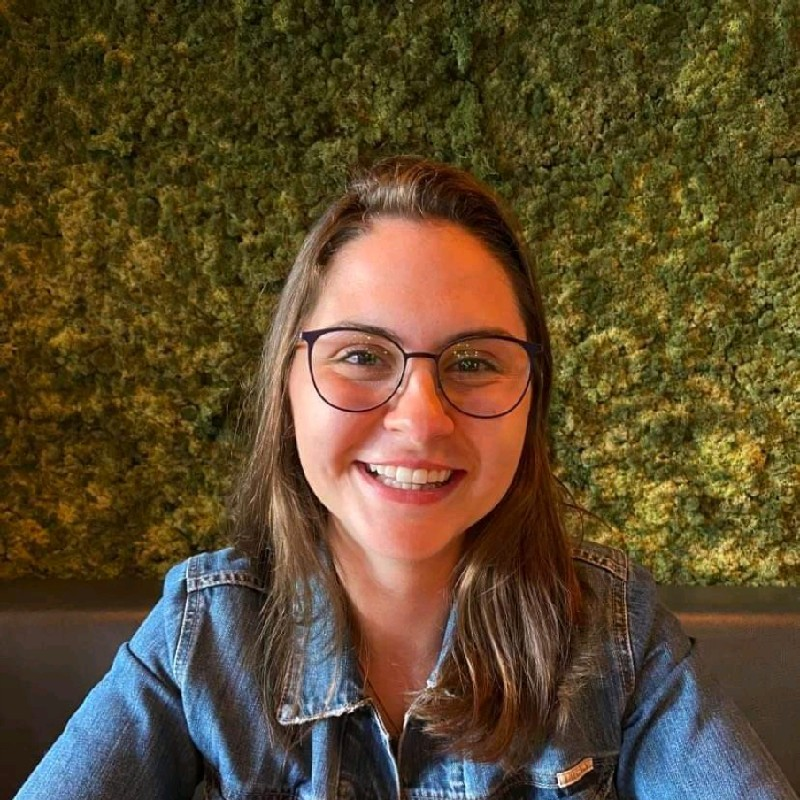
Erika Aelterman
Public Health Promoter, Timiskaming Health Unit
Erika is a Public Health Promoter leading the implementation of Planet Youth Timiskaming, a district-wide initiative based on the Icelandic Prevention Model. She has worked in public health for over 5 years, focusing on active transportation, the built environment, and youth substance use prevention. Erika is passionate about youth engagement and asset-based community development.
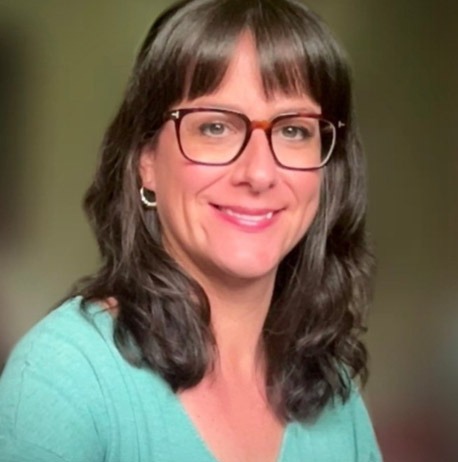
Melanie Bania
Director of Services, Evaluation, and Impact, Canadian Centre for Safer Communities
Melanie joined CCFSC in 2023 and supports the development of Community Safety & Well-Being plans across Canada, as well as the monitoring and evaluation of plans and programs. Melanie was part of the team at the Institute for the Prevention of Crime that launched the CMNCP in 2006. She is thrilled to be back as part of the team! Melanie holds a PhD in Criminology and her areas of expertise include collaborative governance, community-based crime prevention, youth violence prevention, youth justice, program evaluation and performance measurement. Melanie has a unique blend of front-line, senior management, and academic experiences, allowing her to see issues and solutions from various angles. Melanie’s approach relies on genuine engagement, authentic relationship-building, and focuses on continuous learning. She grew up in rural Northern Ontario, is fluently bilingual in English and French and is committed to working from community-centered and anti-oppressive lenses.
Melanie resides on the traditional unceded territory of the Algonquin Anishnaabeg People, colonially known as Ottawa, Ontario.

Alyssa Bedard
Community Development Coordinator, North Bay Parry Sound District Health Unit
Alyssa Bedard is a Community Development Coordinator with North Bay Parry Sound District Health Unit. She has worked in public health for over 7 years, focusing on school health promotion and substance use prevention. She is currently coordinating the Planet Youth Nipissing initiative, and is passionate about partnerships, health equity and youth engagement.
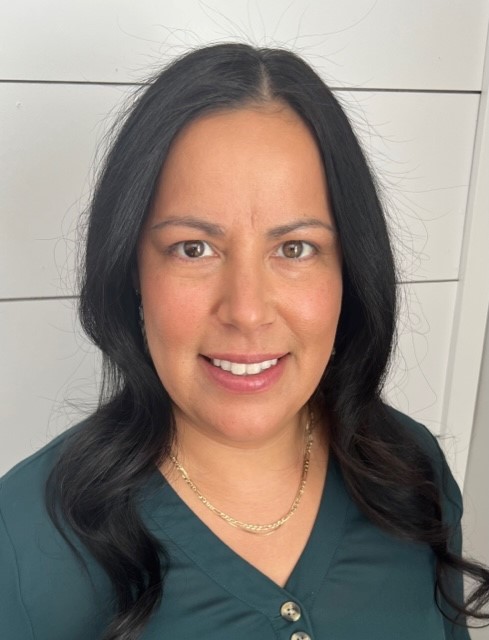
Tina Bobinski
Senior Director of Community Development, Ontario Native Women's Association
Tina Bobinski is the Senior Director of Community Development with the Ontario Native Women’s Association. She is Ojibwe and a member of Nezaadiikaang (Lac Des Mille Lacs First Nation). She holds a Master Degree of Social Work, Indigenous Field of Study, and has worked in health, mental health and addiction, social, and housing sectors for over 24 years, including over 12 years of programs and services leadership and management. She is passionate in providing culture-centered services with Indigenous people and communities and has contributed to many culturally-adapted public health programs with Indigenous populations. She has extensive experience designing and implementing culturally-safe mental health and addictions services with and for Indigenous people, with focus on advocacy for funding increases and implementation of prevention and intervention models within community. She has led and participated in many research initiatives that increase knowledge of the benefits of using culturally relevant ways of working with Indigenous people and communities. She is an active advocate for Indigenous women, peoples’ and communities’ well-being needs. In recognition of her continued dedication to the promotion of Indigenous health and wellbeing, Ms. Bobinski was a co-recipient of the 2019 Indigenous Research Partnership Award from Lakehead University based on ten years of successful research partnerships. The award recognizes collaborative projects, which include key roles for Indigenous peoples, mutually beneficial outcomes for the researchers and Indigenous partners, contributing to the education and dissemination of research results that accurately address individual and community needs. Ms. Bobinski is also a Board of Director for Ontario Aboriginal Housing Services. She resides in Thunder Bay, ON with her husband and daughter.

Melissa Booker (she/her)
Researcher & Evaluator, Black Health Alliance
After earning her graduate degree in Health Evaluation in 2019, she joined Black Health Alliance as a research coordinator for the Pathways to Care project. Pathways to Care was a systems change project that focused on improving access to mental healthcare for Black youth and their families. She is a researcher and evaluator at Black Health Alliance who specializes in survey design, quantitative methods, and social network analysis. Her research interests include health equity, mental health, sexual health, and access to care for marginalized populations, particularly Black and 2SLGBTQ+ communities. Melissa is a Credentialed Evaluator with the Canadian Society of Evaluation. Her research has been published in peer-reviewed journals including the Child and Adolescent Social Work Journal, the Journal of Recovery in Mental Health, and the Canadian Psychology Journal.

Matthew Carrol
Supervisor, FOCUS/SPIDER - Community Risk Intervention Team, SafeTO
Matthew started his professional career as a paramedic by completing his Diploma of Health Sciences in Emergency Medical Sciences (Paramedicine). Matthew continued his journey by completing a nursing program and continues to maintain his registration with the College of Nurses of Ontario (CNO). Matthew in his practice found a passion working with community and decided in addition to complete an Honours Bachelor of Social Work (Indigenous) which specialized his social work practice with the intention of serving 2SLGBTQIA+ folx and racialized and Indigenous Peoples. Matthew continues to maintain his registration with the Ontario College of Social Workers and Social Service Workers (OCSWSSW). Matthew has clinical experience in areas such as, forensic psychiatry, in-patient and out-patient mental health, assertive community treatment, addiction and harm reduction medicine, community safety and wellbeing, crisis intervention, and in post-secondary academia teaching in social service work and nursing programs. In Matthew’s recent position, prior to joining situation tables, he led both the supervision and clinical development of the community crisis and case management team that serves as the City’s new Toronto Community Crisis Service (TCCS) at one of the four anchor agencies, working in partnership with the City of Toronto Police Reform team. Matthew is now the Supervisor of Community Risk Intervention Team overseeing situation tables and leading a management-level team responding to some of Toronto’s most challenging crisis and community safety situations.
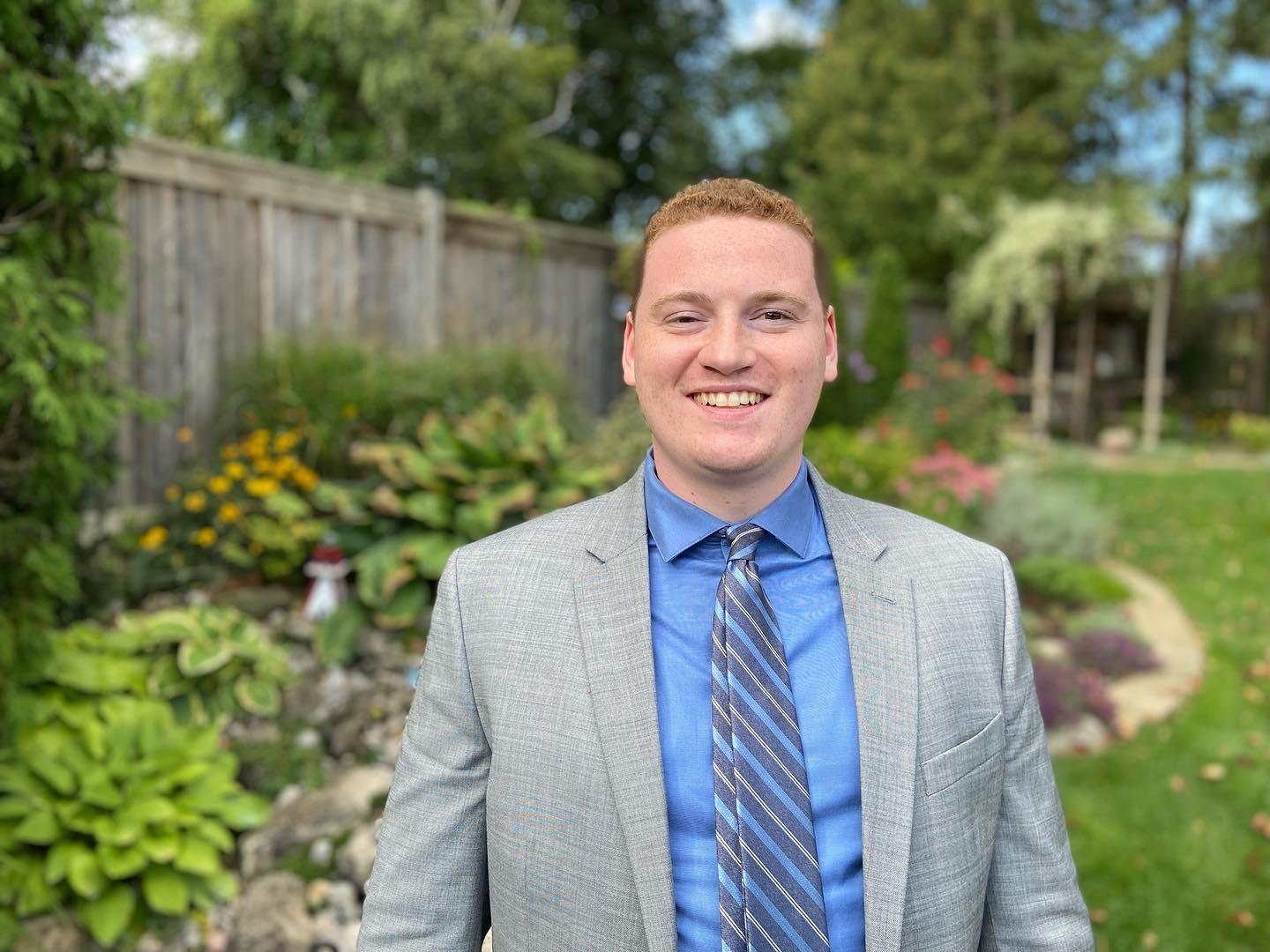
Noah Clarke
Research and Policy Analyst, Regional Municipality of York
Noah holds a professional master’s degree in public policy from the University of Toronto’s Munk School of Global Affairs and Public Policy, and an honours bachelor’s degree in social sciences from the University of Western Ontario – specializing in political science. He worked at the City of Guelph for a year and quarter as a Finance Policy Analyst where he conducted various jurisdictional scans and worked on a revenue policy. Noah has worked at York Region in two roles over the past 2 and quarter years. Currently, he is a Research and Policy Analyst on the Community Development team where he support the CYF Situation Tables. Noah provides secretariat support for the Tables including communications, tracking 26 data points for 290 situations in 2023, meeting materials development, and note-taking. He has regularly performed quantitative and qualitative data analysis around identified risks and gaps to inform policy development that would improve service navigation and connections.

Alexis Cook
Grey Bruce Community Safety and Well-Being Planning Coordinator
Alexis is a dedicated health advocate with an extensive background in public health, acute care and congregate settings, she embodies a commitment to improving community well-being and fostering health equity through community collaboration. Alexis coordinates the Grey Bruce Situation Table for Acutely Elevated Risk (STAR) and the Community Safety and Well-Being Plan for Grey and Bruce Counties. In her free time Alexis volunteers with Big Brothers Big Sisters, spends countless hours gardening and loves to explore new hiking spots with her family.
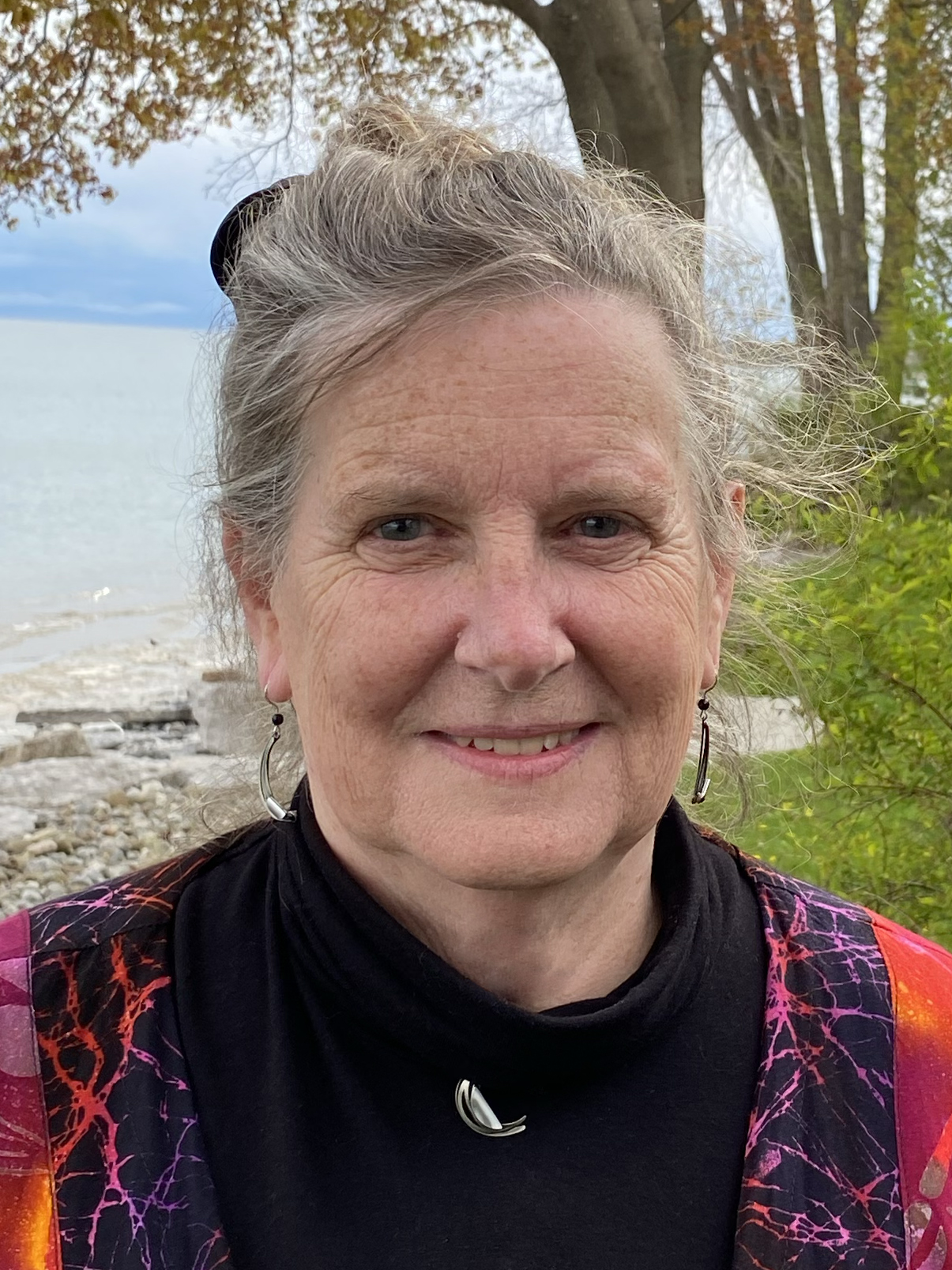
Pamela Cross
Feminist Lawyer
Pamela Cross is a feminist lawyer; a well-known and respected expert on violence against women and the law. She works as a researcher, writer, educator and trainer with women’s equality and violence against women organizations across Canada.
In June 2024, Pamela was awarded a Doctor of Laws Honoris Causa, by the Law Society of Ontario.
In March 2023, Pamela was appointed to a two-year term with Ontario’s Domestic Violence Death Review Committee, which reviews all domestic homicide deaths to identify risk factors and propose recommendations for systemic change.
In 2022, Pamela participated in the Inquest into 2015 triple femicide of Carol Culleton, Anastasia Kuzyk and Nathalie Warmerdam in Renfrew County, Ontario, both as an expert witness in her role as Luke’s Place Legal Director and as an external consultant producing a report for the Inquest on behalf of the community. Following the Inquest, Pamela was commissioned by End Violence Against Women Renfrew County to develop a toolkit about community engagement with inquests, We Remember.
Pamela also participated in the Nova Scotia Mass Casualty Inquiry as an expert witness on intimate partner violence.
Pamela is an author on the Luke’s Place toolkit, The law and parenting arrangements after separation (2021) and Family Court and Beyond (2018, 2021). With funding from the federal Department of Justice, she led a team that conducted research into the use of family violence screening tools for family law practitioners. The final report, entitled What You Don’t Know Can Hurt You: The importance of family violence screening tools for family law practitioners (2018), includes a draft screening tool.
As a member of the teaching faculty with the National Judicial Institute, she trained criminal and family court judges on managing domestic violence cases, and, in 2012, she developed violence against women curriculum for law schools in a project with the Law Commission of Ontario.
For the Canadian Council of Muslim Women, Pamela co-authored Muslim and Canadian Family Laws: A Comparative Primer and was the author of Violence Against Women: Health and Justice for Canadian Women. She also delivered workshops on family law to CCMW members.
In her previous role as Luke’s Place Legal Director, Pamela was the lead trainer for Ontario’s Family Court Support Workers, providing both in-person and online training and support for approximately 100 frontline workers who assist abused women in family court. She led the development and delivery of domestic violence awareness training to approximately 2,500 Legal Aid Ontario staff, community clinics and lawyers across the province. She was also Co-Chair of the Violence Against Women Roundtable, which provided guidance to the provincial government on this issue.
Pamela is the 2020 recipient of the Corry Award from Queen’s Law, the 2019 recipient of both the Laura Legge Award from the Law Society of Ontario and the Guthrie Award from the Law Foundation of Ontario, and a 2015 recipient of the Attorney General’s Victim Services Award of Distinction. In 2006, she was a YWCA Toronto Woman of Distinction for her work in the area of law reform.
She is a frequent speaker at provincial, national and international conferences and is a regular commentator on violence against women and the law for print media, radio and television across Canada.
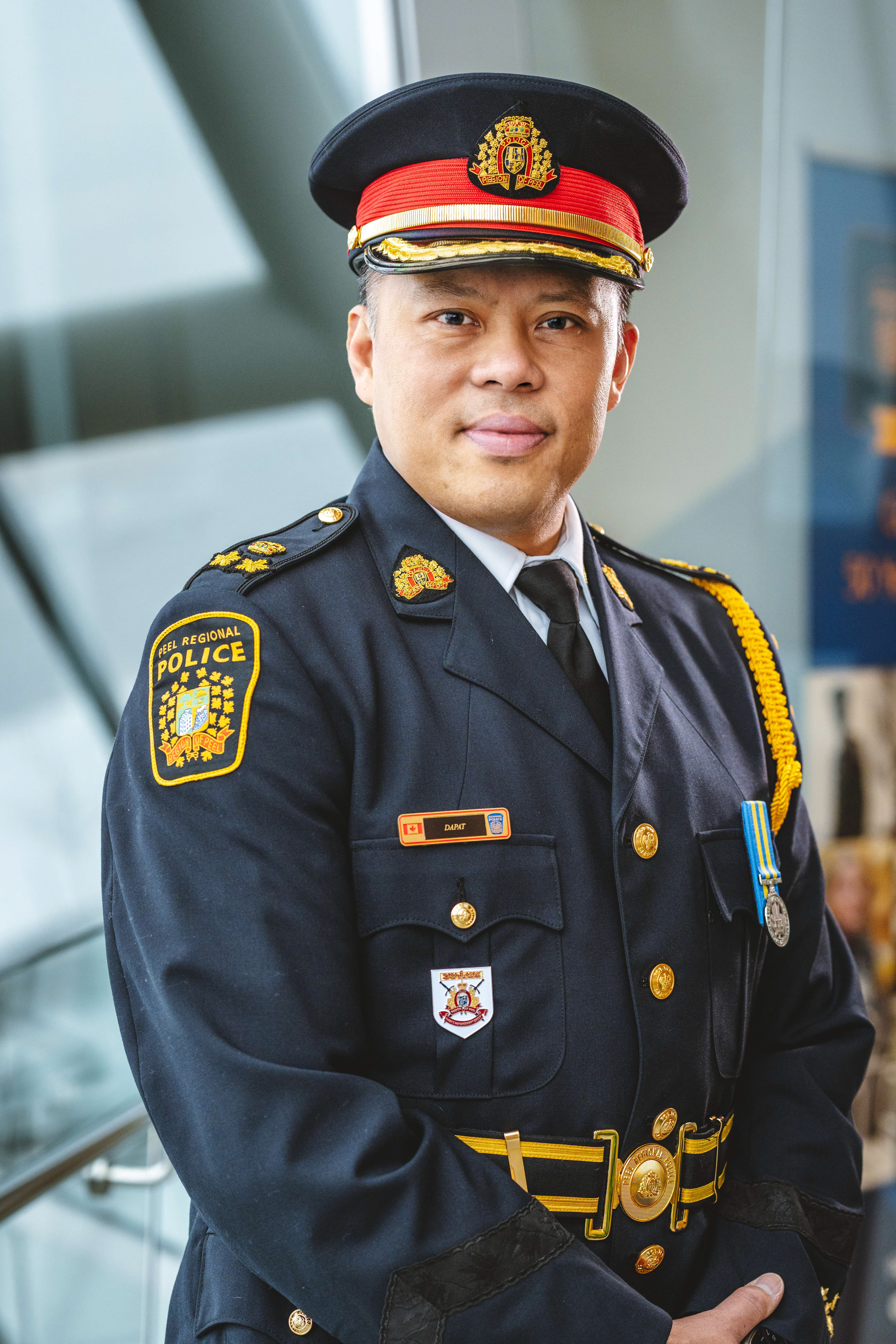
Mark Dapat
Deputy Chief, Peel Regional Police
Deputy Chief Mark Dapat leads the Community Safety and Well-being Command pillar at Peel Regional Police and is responsible for sworn and civilian member Recruiting, Training, Organizational Wellness, Community Engagement and Mobilization.
Mark represents the Peel Regional Police on several Ontario Association of Chiefs of Police committees, including the Equity, Diversity and Inclusion Committee and the Community Safety and Crime Prevention committee that he co-chairs. He is also a member of the Canadian Association of Chief’s of Police – Crime Prevention and Community Safety and Well-being Committee.

Lynn Démoré-Pitre
Director of Children's Services, District of Nipissing DSSAB
Lynn Démoré-Pitre is the Director of Children’s Services at the District of Nipissing Social Services Administration Board, bringing over 30 years of experience in the early years and child care sector. Her career began as an Educator and has evolved to include significant roles such as Executive Director of a multi-site not-for-profit agency. Lynn also has experience in academia, having taught Early Childhood Education at a northern college for over five years. For the past 19 years, Lynn has been with the District of Nipissing Social Services Administration Board, holding various roles within the social services agency. In her current role as Director of Children's Services, she collaborates with community partners and the early years and child care sector to ensure families and children have access to quality, inclusive early learning services.
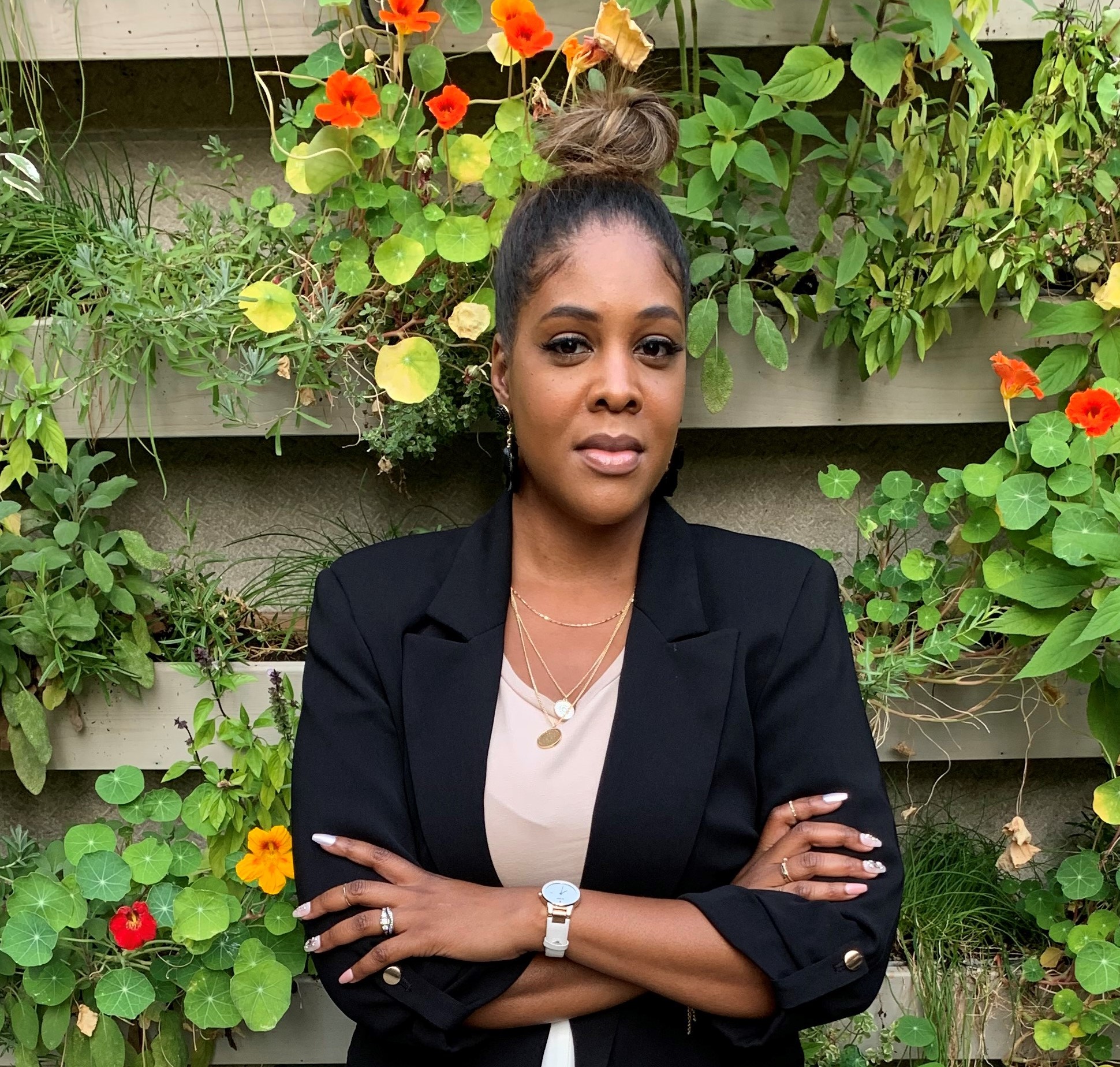
Jenna Dolly
Program Manager, Community Development (A), Regional Municipality of York
Jenna’s professional experience at York Region spans over 13 years. In 2021, Jenna joined the Strategies and Partnership Branch in the position of Policy and Project Development Specialist focused on the implementation of the Region’s Corporate Action Plan to Address Anti-Black Racism and other DEI initiatives.
As a Community Development Project Specialist, Jenna implemented initiatives in York Region’s Community and Safety Well-being Plan, including supporting the launch of the Children, Youth and Families Situation Tables. Jenna became the Senior Policy Analyst on the Community Development Team in June 2023 and was promoted to Program Manager, Community Development (A) in October 2023, where she coordinates the implementation of community-based programs and initiatives outlined in York Region’s Community and Safety Well-being Plan.
Jenna holds a Bachelors and Masters in Social Work from York University. Jenna’s career expands over 17 years of frontline community work, program implementation/delivery and social policy analysis experience with a focus on social equity and justice.
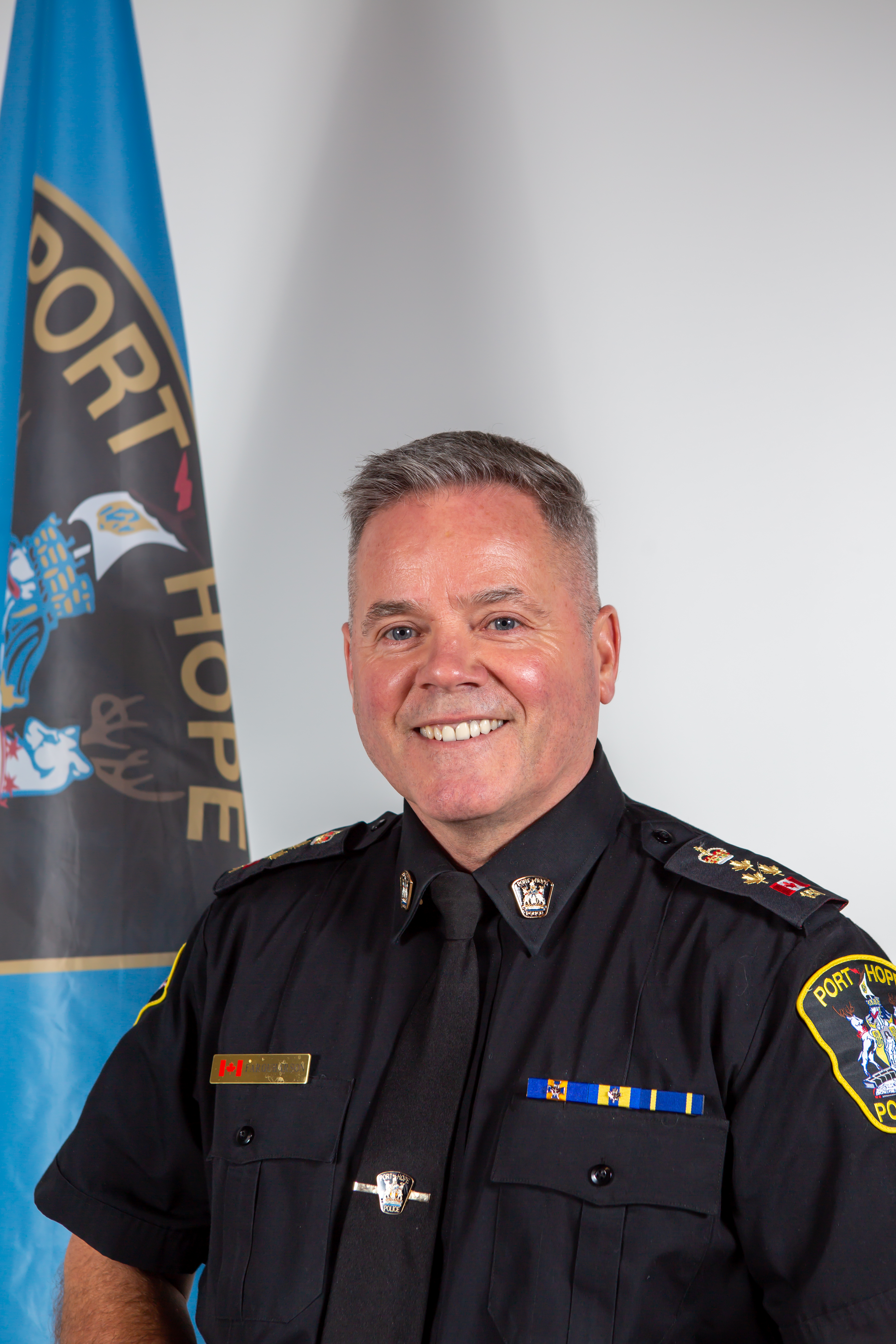
Tim Farquharson
Chief of Police, Port Hope Police Service
Chief Tim Farquharson began his policing career in 1986 with Peterborough Police Service. He became Chief of Police with the Port Hope Police Service in 2023. He has extensive experience in Operations and Criminal Investigations, including a lengthy tour of duty in the Intelligence and Drug Investigation Units.
He is a graduate of the Rotman Police Leadership Course through the University of Toronto, and he attended the FBI Police Leadership Program in the United States.
Chief Farquharson is a member of the Canadian Association of Chiefs of Police Drug Advisory Committee and is also a current Co-Chair of the Ontario Association of Chiefs of Police (OACP) Substance Advisory Committee. He is a Vice President of the OACP and pillar lead for the Police Operations Committees. He is an active member of many other agencies and committees dealing with the challenges of mental health and addictions.
He has made presentations as an expert on building relationships with youth and supporting the four-pillar approach to the drug crisis in our Province. He also presented as a guest of the Canadian Consulate in Montana and Utah on the topic of policing and drug issues. He recently presented at the North American Drug Dialogue regarding addiction challenges and policing as well as the Association of the Municipalities of Ontario AGM.
Over the course of his successful career, Chief Farquharson has received many accolades, including the Lieutenant Governor’s Medal of Bravery and he has been invested as a Member of the Order of Merit of the Police Forces.
When off-duty, Chief Farquharson spends time on his farm with 31 animals, 4 children and grandchildren. He sits on Community Boards such as Cornerstone Family Violence, Rebound Child and Youth Services and Edmison House (Federal Parolees). He is actively involved in fund and awareness raising events with the aim of supporting our marginalized and vulnerable population.
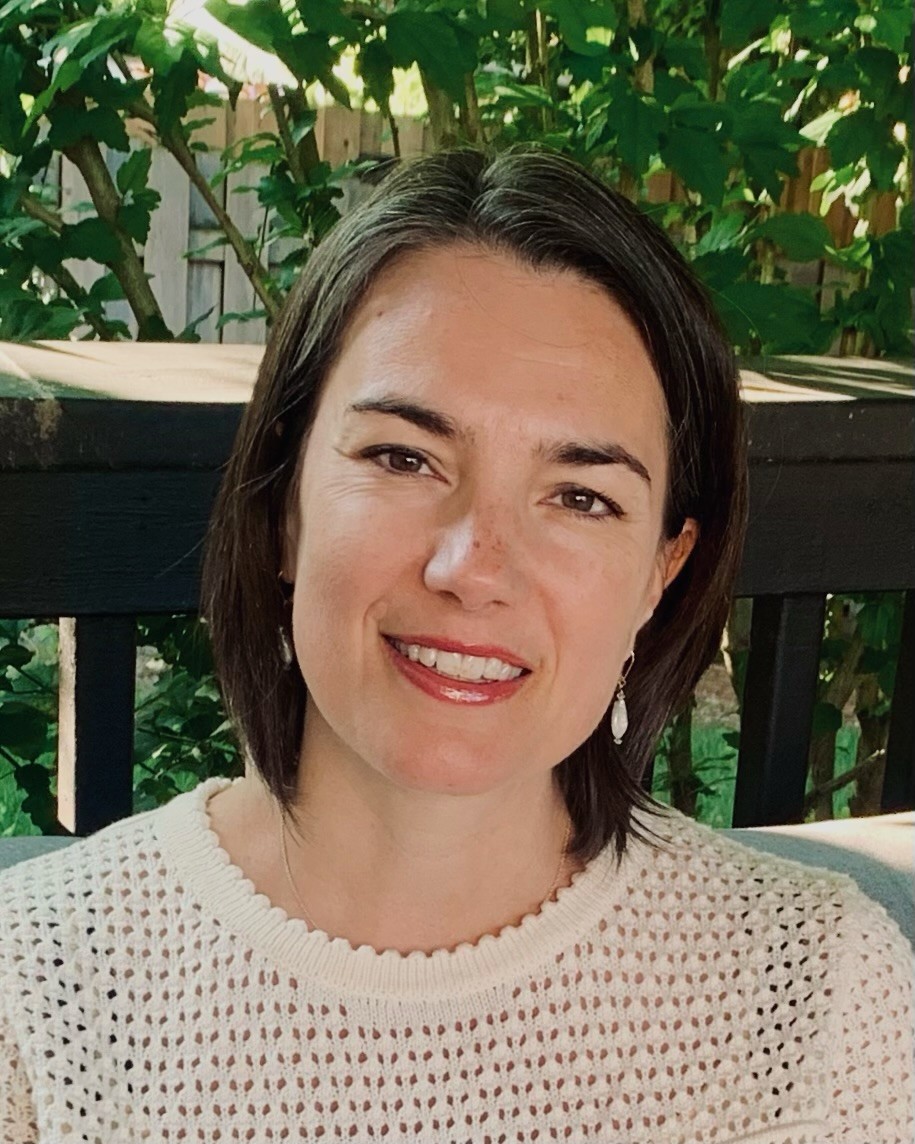
Caroline Folkman
Manager, Toward Common Ground
Caroline is a compassionate and caring leader, committed to addressing complex health and social challenges. She has 20 years of experience leading research and evaluation initiatives, promoting collaboration, and managing complex projects. Caroline has a Master of Science in Epidemiology from the University of British Columbia and a Graduate Diploma in Social Innovation from the University of Waterloo.
Caroline is the Manager of Toward Common Ground (TCG), a collaborative of community partners that promotes collective action to improve the lives of people in Guelph and Wellington. Caroline chairs the Community Resilience Coalition of Guelph & Wellington and is passionate about fostering positive experiences for children and youth. Caroline lives in Guelph with her son and husband, and loves to watch her son play soccer.

Michelle Glabb
Director of Employment and Social Services, District of Nipissing DSSAB
Michelle has 27 + years’ experience working in the social services field 24 years of which have been working for the District of Nipissing Social Services Administration Board (DNSSAB) within the Ontario Works program. Michelle started her career at the DNSSAB working on the front line moving into various management roles and has been the Director of Employment and Social Services for the past 9 years. Michelle also has experience working within the Children and Youth Treatment sector and within the Women’s Shelter system. She is well versed on the challenges associated with living in poverty both from a front line and systemic perspective, is experienced in the development and implementation of innovative and creative solutions and is passionate about doing whatever it takes to support vulnerable and marginalized populations.

Dr. Tara Gomes
Program Director, Ontario Drug Policy Research Network
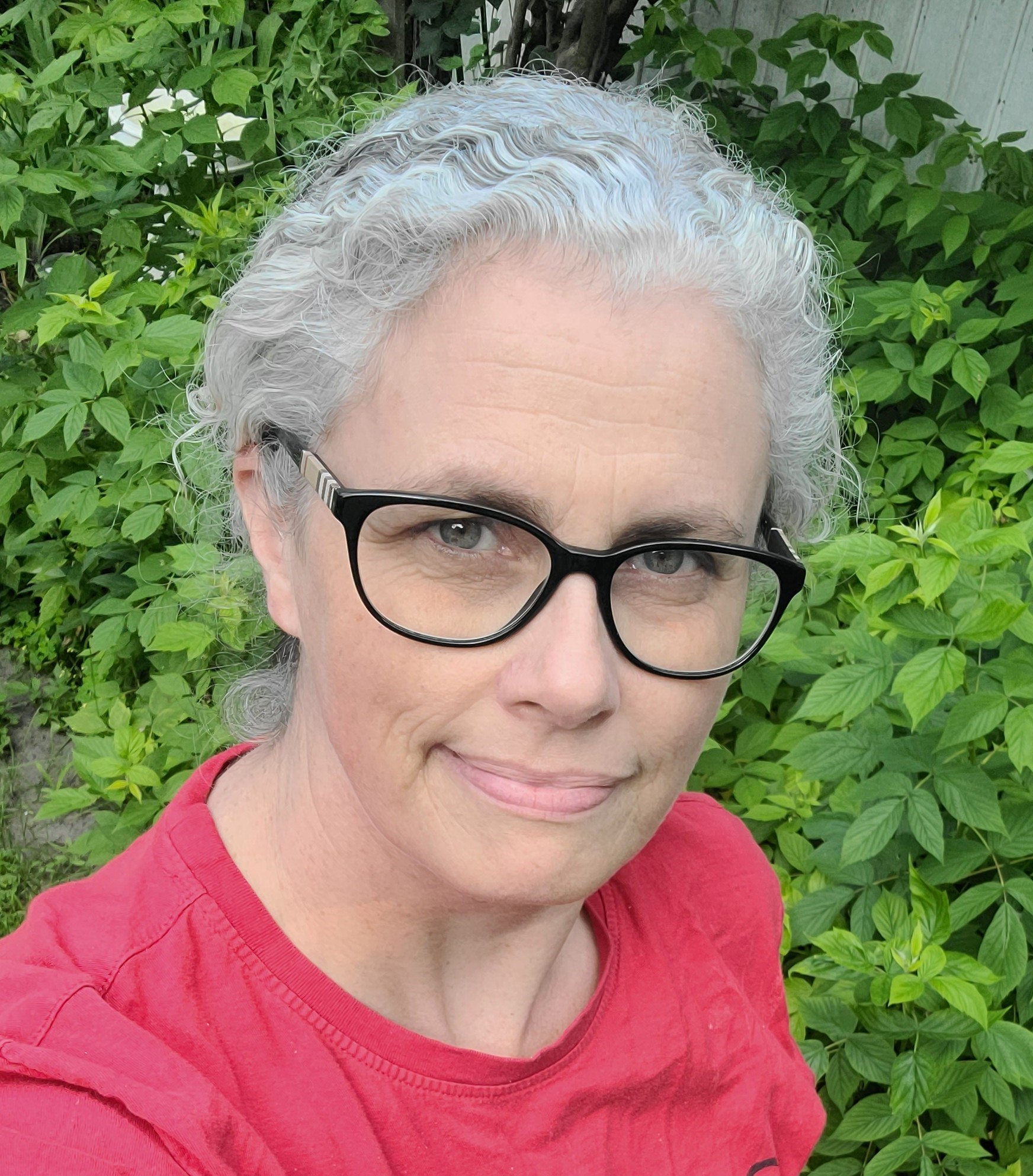
Stephanie Gray
Coordinator, Lanark County Situation Table and Community Safety and Well-Being Plan
Stephanie Gray has been the Coordinator of the Lanark County Situation Table and Community Safety and Well-Being Plan for Lanark County and Smiths Falls since 2015. A graduate of Carleton University’s Journalism and English programs, she has more than 30 years of experience in communications, including corporate communications for municipal government, as well as college-level teaching. She also serves as the Coordinator for the Lanark County Sexual Assault & Domestic Violence Advisory Committee, which includes representation at the provincial community of practice for coordinating committees. Collaboration, partnerships and a strong desire to enhance health and well-being in her community and beyond keep her inspired.
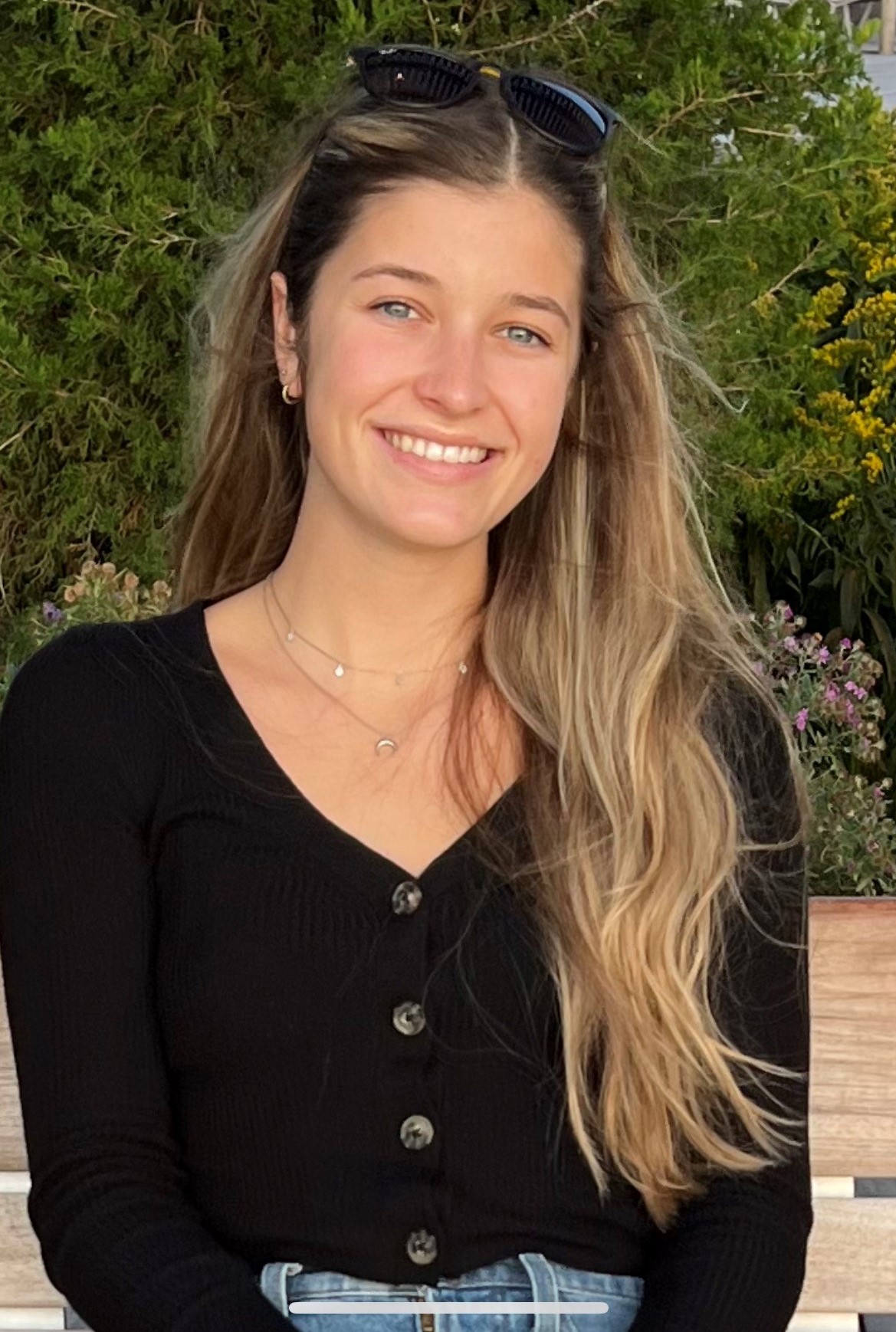
Kaidan Hardy
Health Promoter, Porcupine Health Unit, Planet Youth Project Lead
Kaidan Hardy is a Health Promoter leading the implementation of the Icelandic Prevention Model in Timmins with the Porcupine Health Unit. Kaidan completed her undergraduate degree in Health Sciences at Western University and her master’s degree in Developmental Psychology at the University of Toronto. Kaidan has a passion for improving the well-being of communities driven by the experience of health disparities in Northern Ontario.

Niki Hashie
Justice Director, Ontario Federation of Indigenous Friendship Centres
Niki Hashie is Anishinaabe and Oji-Cree from Wasauksing and Ginoogaming First Nations, she is crane clan and was born and raised in Toronto. She received her Honours B.A. and Juris Doctor from the University of Toronto and is a member of the Law Society of Ontario. Niki first joined the OFIFC in 2017 and has supported the Friendship Centre Movement in a variety of capacities, including advancing the Ending Violence Against Indigenous Women Policy and Indigenous Justice portfolios. She is currently the Program Director of Justice.
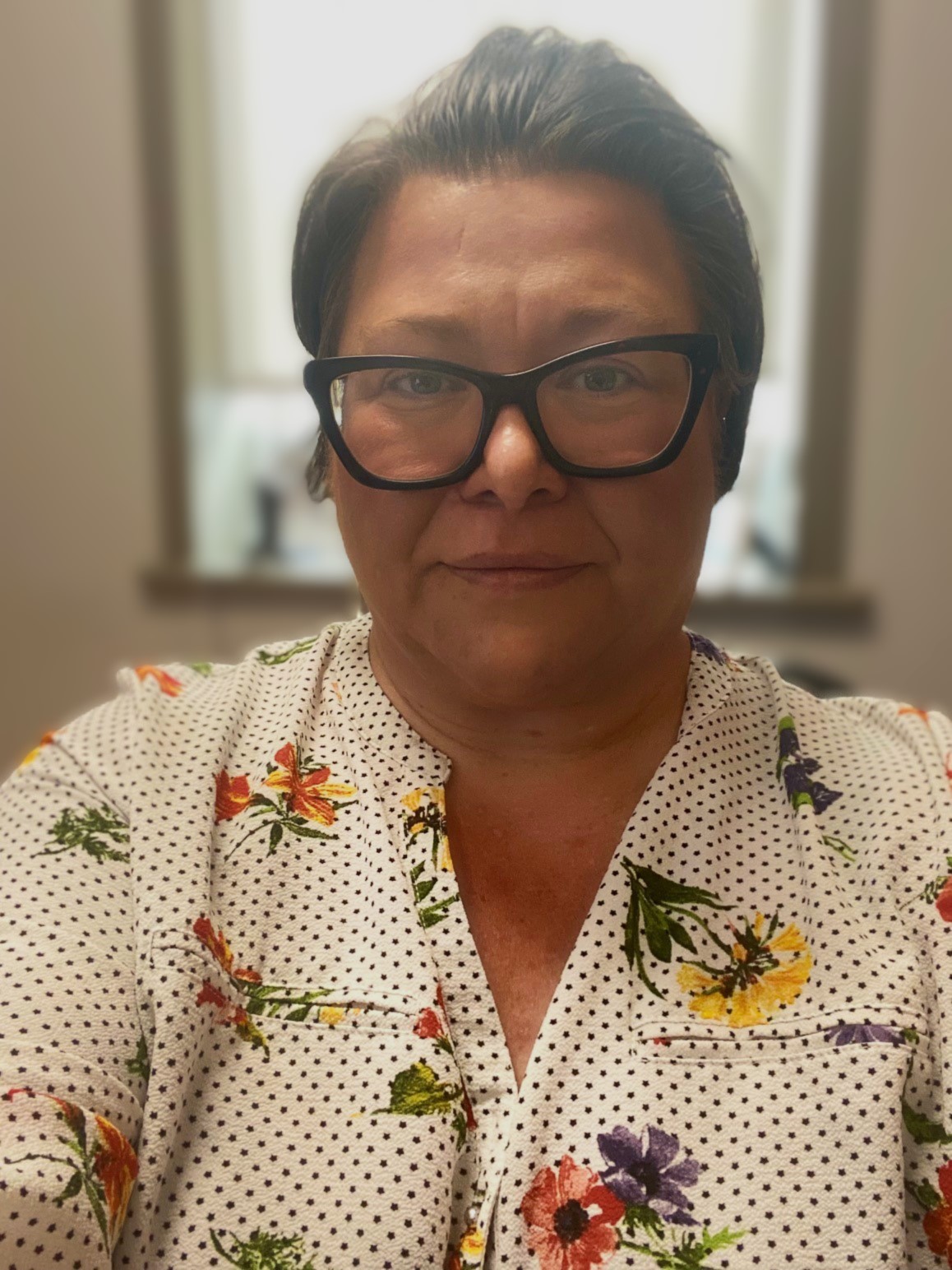
Michaela Johnston
Chair, Community Safety and Well-Being for Huron Municipal Working Group
Michaela is the Emergency (CEMC), Accessibility and Health and Safety Manager for the Town of Goderich and sits as Chair of the Community Safety and Well-Being for Huron Municipal Working Group, as well as Secretary of the Oversight Committee which guides the implementation of the Community Safety and Well-Being for Huron Plan.
Born and raised on a farm in rural Ontario, she studied criminology and psychology at University of Toronto before working as a Law Clerk and Paralegal in Toronto, Grand Cayman, and Goderich. Her education, work and life experiences have provided a keen interest and insight into the work being done by municipalities with respect to Community Safety and Well-Being. Michaela is thrilled to work with municipal and community partners to enact change through education and by supporting or creating campaigns and initiatives to address the Plan’s priority areas.
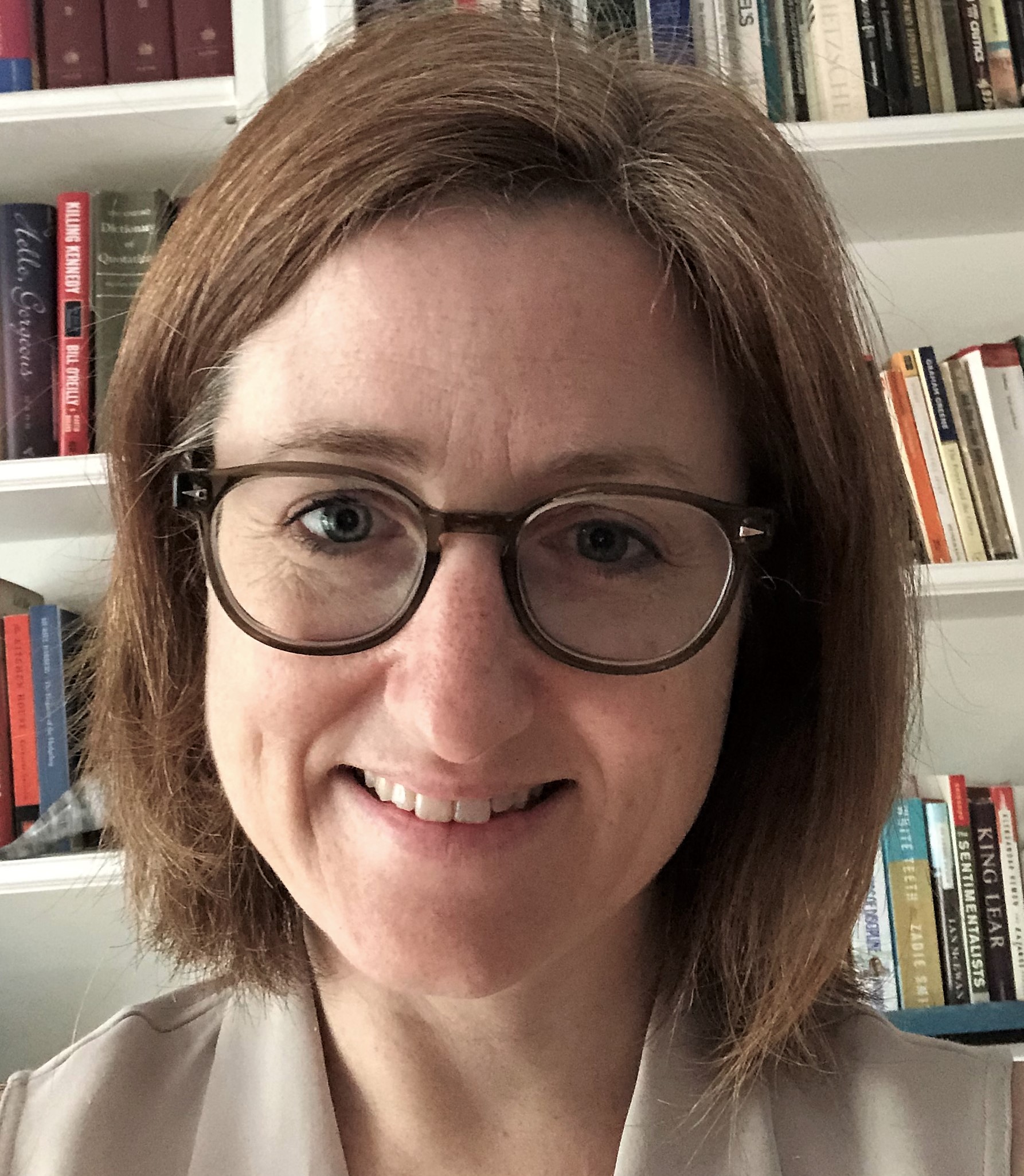
Lindsay Jones
Director of Policy and Government Relations, Association of Municipalities of Ontario
Lindsay Jones joined the Association of Municipalities of Ontario as the Director of Policy and Government Relations in October 2022, where she leads advocacy and policy work on behalf of Ontario’s municipal governments. Over the past 20 years, she has developed a deep expertise in strategy, policy and government decision-making through progressively senior roles in the Ontario and federal governments in areas such as income security, labour markets and employment, and community infrastructure. She is a member of the Board of Directors of the Parkdale Queen West Community Health Centre and the Jane and Finch Centre.
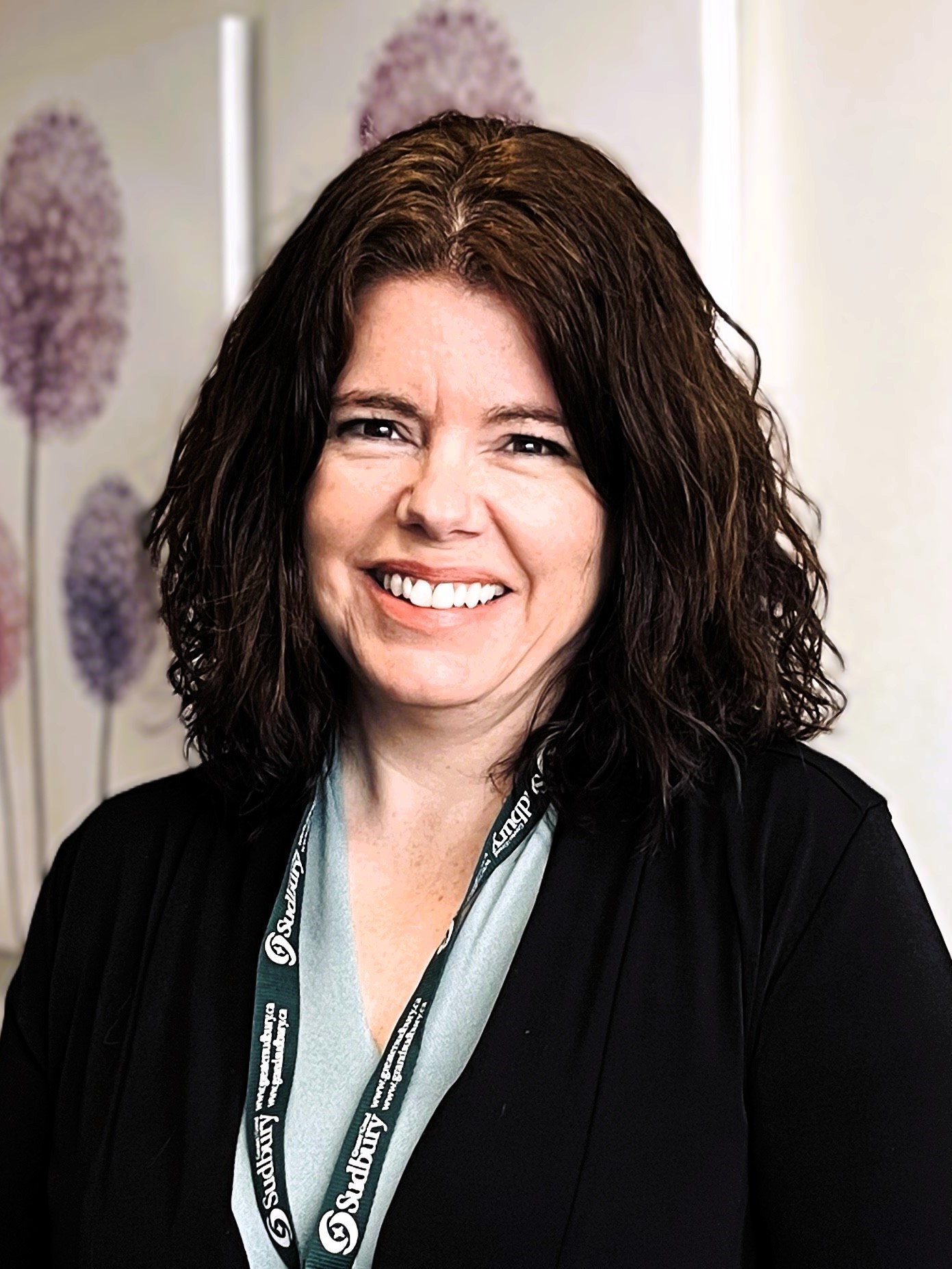
Cindy Junkala
Co-Ordinator of Shelters and Homelessness, City of Greater Sudbury
Cindy Junkala has over 20 years’ experience in the Social Services field, including eight years offering services at Community Mobilization Sudbury’s Rapid Mobilization Table. Her aim is to support and improve the lives of vulnerable people in her community of Greater Sudbury.
As Coordinator of Shelters and Homelessness with the City of Greater Sudbury’s Social Services Division, one of Cindy’s main responsibilities is to collaborate with service providers in the Housing and Homelessness sector with the goal of understanding and meeting the needs of the homeless and at-risk population. Cindy oversees an enthusiastic team of Client Navigators who participate at the RMT table, who have been identified as an assisting agency in over 80% of presentations. As a current steering committee member with RMT, Cindy supports Community Mobilization Sudbury’s initiatives within partner agencies and with community stakeholders.
Cindy is a passionate collaborator who believes strong community partnerships are required to devise urgent solutions for a variety of issues to meet the needs of vulnerable and at-risk people. These partnerships are also a wonderful opportunity for staff in human services fields to identify supporting agency roles, engage, and learn from each other outside the RMT scope.

Brent Kalinowski
Community Safety and Well-Being Planner, City of North Bay
With a diverse background in policing and as one of the founders and architects of the original risk driven collaborative Prince Albert Hub model (Situation Table), Brent is known as one of the leading authorities in Community Safety and Well-Being (CSWB).
Brent's policing experience and unique community safety perspective led to the founding of his own professional and independent practice, guiding and supporting a growing number of adopting CSWB models across Canada and in the United States in the last 10 years.
Now employed with the City of North Bay as the Community Safety and Well-Being Planner, Brent is using his knowledge and professional experiences in advancing a collaborative CSWB plan in his home community.
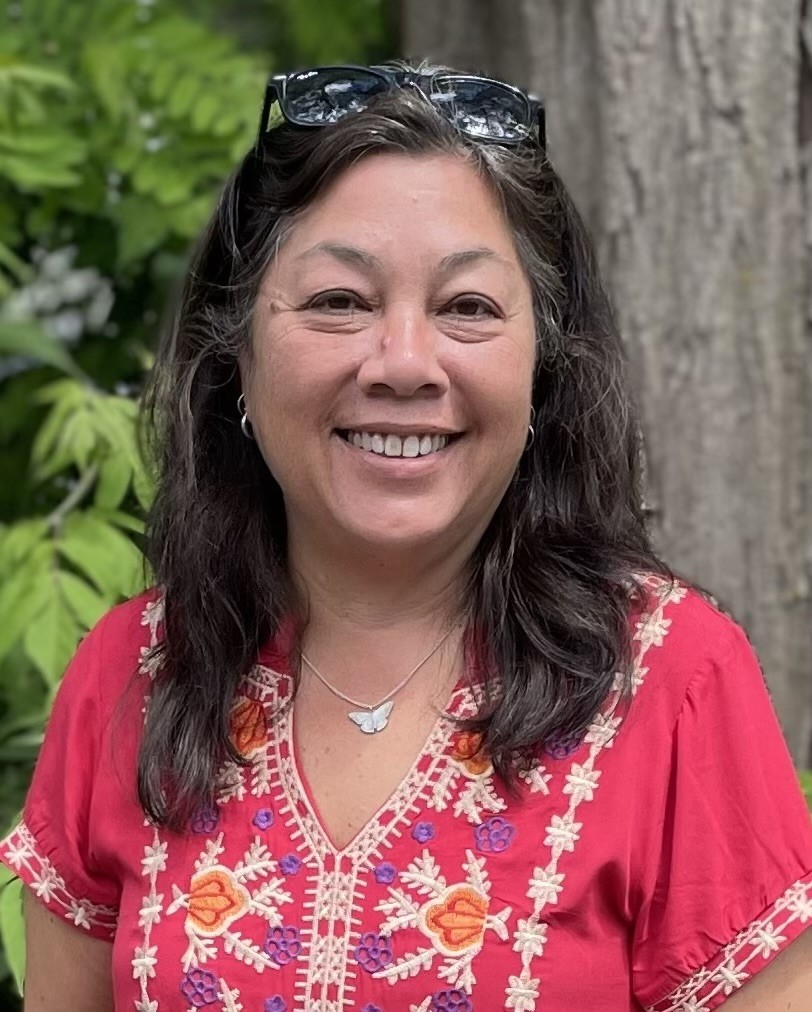
Erin Lee
Executive Director, Lanark County Interval House & Community Support
Erin Lee is a passionate advocate who has spent decades working to end violence against women. Her experience spans anti-violence programs, school board initiatives, provincial associations and numerous boards and committees. Currently Erin is the Executive Director of Lanark County Interval House and Community Support, a Community Safety and Well-Being Plan (CSWBP) member, a Coordinating Committee member and member of the Victimology Advisory of Algonquin College. In recent years, Erin was a recipient of the MAG, the Attorney General’s Victim Services Award of Distinction (2021) and the Elementary Teachers’ Federation of Ontario award for social change (2016). Erin was a member of the Ending Violence Association(EVA) Renfrew County Inquest working group and offered testimony related to rural realities. Erin was appointed to a two-year term in 2023 as a member of the Ontario Domestic Violence Death Review committee. Erin’s advocacy is characterized as solution-focussed, mentoring to new advocates and inclusive to all.
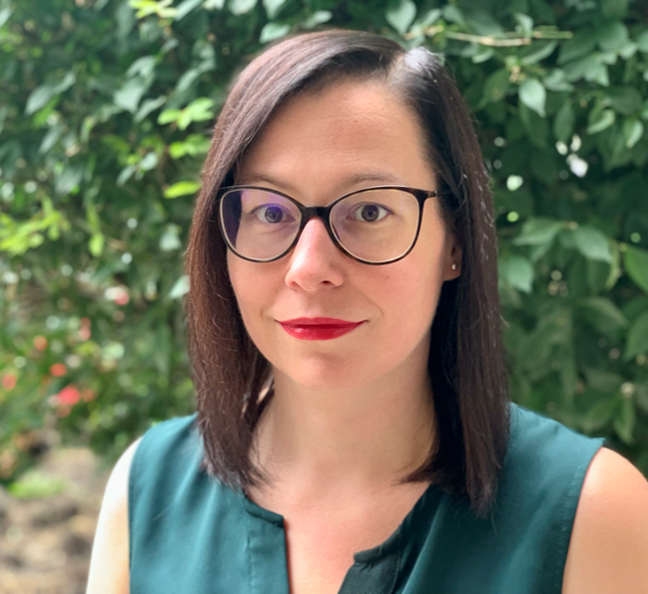
Danielle Letang
Manager, Data Strategy, Rural Ontario Institute
Danielle Letang is the Manager of Data Strategy at the Rural Ontario Institute. ROI’s data analysis program is focused on providing information and evidence for local decision making. Danielle develops interactive rural data dashboards, writes factsheets to present rural and urban trends, and leads the community wellbeing project. Before joining ROI, Danielle worked for federal and provincial governments on natural resource management, climate change research, and sustainability reporting.
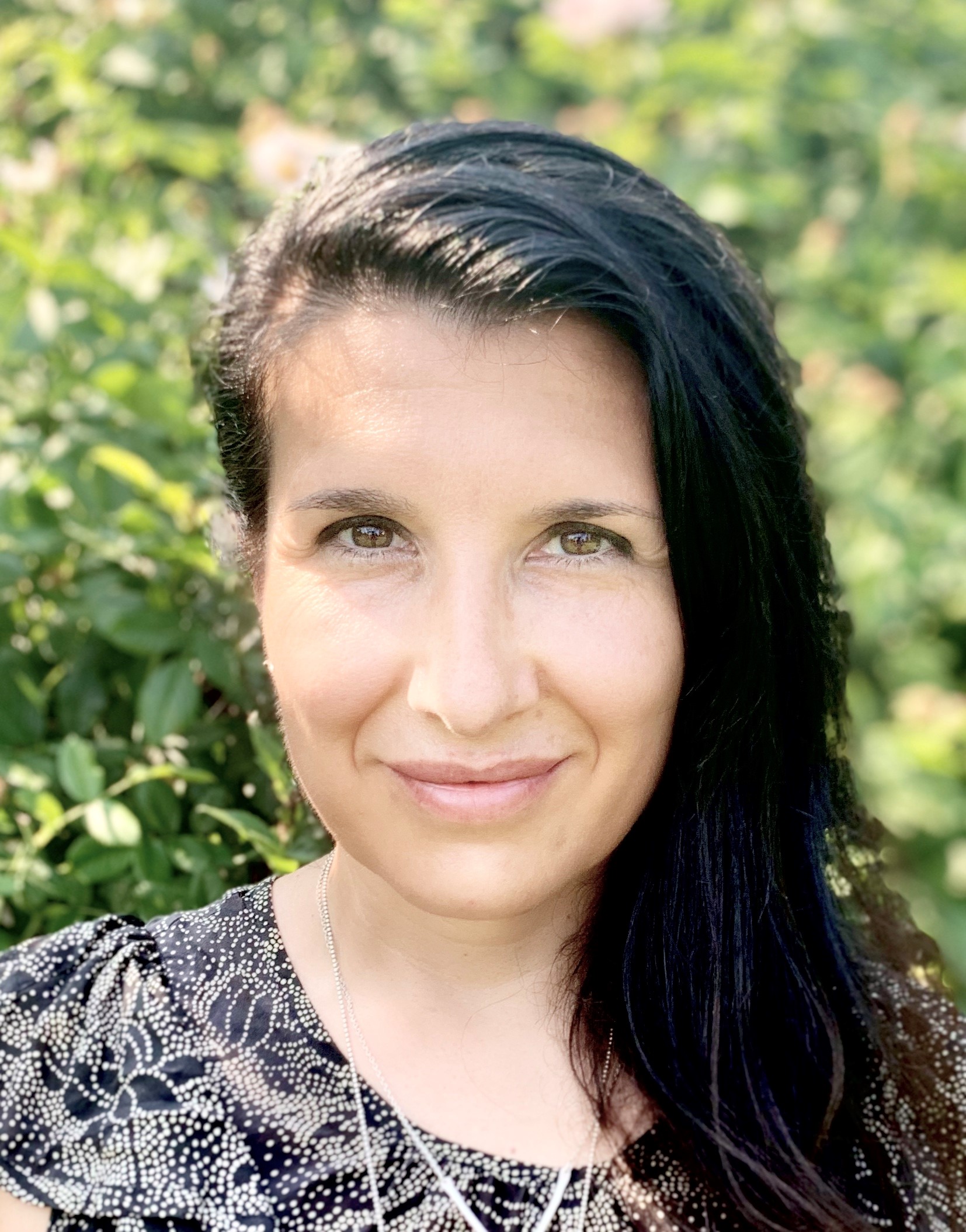
Michelina Longo
Director, External Relations Branch, Public Safety Division, Ministry of the Solicitor General
With an emphasis on high trust relationships, engagement-driven inclusion, and co-design approaches, Michelina Longo is an established transformation leader in the human services sector. Over the course of a near 20 year career with the Ontario Public Service spanning several ministries, she has developed, implemented and evaluated a range of province-wide initiatives, including trauma-informed survivor/victim services in rural, remote, First Nation communities, specialized services for men survivors of childhood sexual abuse, partner assault response programs, sexual assault counselling services, survivor-centred support services for children and youth, newcomer settlement programs for international students, newcomer youth and their families, as well as supportive housing solutions for survivors of intimate partner violence, human trafficking and adults with developmental disabilities, among other accomplishments.
In her current executive role as Director, External Relations Branch, Public Safety Division with the Ministry of the Solicitor General. Michelina is responsible for a wide-ranging, high profile portfolio that includes: operational policy development, legislative and regulatory reform to advance Ontario’s policing sector, as well as community safety and well-being requirements for municipalities; modernized training and education strategy for police services and boards; operational funding, oversight and support for First Nation policing in Ontario and Ontario Major Case Management; and accountability for $350M+ annual budget to administer over 20 public safety funding and grant programs. She leads high performing, cross-functional teams to cultivate respectful, dynamic, positive relationships with First Nation and Indigenous leaders, local municipalities, provincial and federal governments, as well as education, justice, health, housing, and community services partners to achieve strategic outcomes and identify opportunities for continuous improvement and innovation.
Committed to lifelong learning, Michelina has pursued doctoral studies and holds a master’s degree in social work specializing in social policy, organizational and community development, and is an alumna of the Public Sector Executive Leadership Program, Rotman School of Management, University of Toronto.
Michelina is a first generation Italian-Canadian who hails from Omemee, Ontario, and is a proud farmers’ daughter.

Brianne Luckasavitch
Victim Advocate & Public Education Coordinator, Lanark County Interval House & Community Support
Bri has worked for Lanark County Interval House & Community Support for over 15 years; first as the Public Education Coordinator and most recently as the Victim Advocate (VA). In her role as VA, Bri works alongside the Lanark County OPP ensuring that victims of domestic violence, sexual assault and human trafficking are supported using a trauma informed, harm reduction approach. Her relationship with Police and Community has been instrumental in the improved response for victims and survivors of SADV & HT in Lanark County.
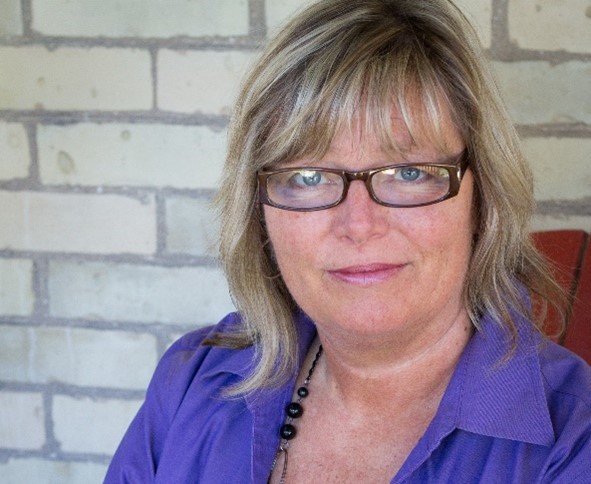
Margaret MacPherson
Research Associate, Centre for Research & Education on Violence Against Women & Children, Western University
Margaret has been leading social change initiatives on gender-based violence for over twenty years. She designs projects, curriculum and related materials for CREVAWC on topics that include community coordination, workplace domestic violence, sexual harassment and violence, elder abuse and exploitation.
She also convenes the Building a Bigger Wave network, a provincial network of Violence Against Women Coordinating Committees.
Margaret is passionate in her belief that everyone has an important contribution to make in creating safe and supportive environments at work and in our communities.

Scott McKean
Associate Director, Violence Prevention and SafeTO, City of Toronto

Felix Munger (he/him/il)
Executive Director, Canadian Centre for Safer Communities
Felix joined the Canadian Centre for Safer Communities in 2015 as the executive director. Felix has over 25 years of experience facilitating strategic planning, priority setting, and collaboration building with a wide range of participants including equity-deserving and Indigenous communities. Originally trained as a psychiatric nurse, he has experience in community safety, organizational collaboration, mental health and addiction, equity, diversity, inclusion, and organizational capacity development. He holds a master’s degree in environmental studies and a PhD in community psychology. Most recently, his work is focused on the impacts of climate change and social polarization on community safety, as well as evaluation and monitoring of community safety. Felix resides in Waterloo Region, Ontario, which is the traditional territory of the Haudenosaunee, Anishinaabe, and Neutral peoples.

Derek Needham
Ontario Provincial Police

Alicia Neufeld
Senior Manager, Policy, Association of Municipalities of Ontario
Alicia Neufeld is a Senior Manager of Policy at the Association of Municipalities of Ontario (AMO), where she is responsible for health and human services in additional to a range of other municipal priorities.
Before joining AMO in January 2024, Alicia was the Associate Director of the Toronto Drug Strategy Secretariat at Toronto Public Health. Prior to that, she spent more than a decade with the provincial government, including many years in strategic policy at the Ministry of Health where she led complex policy files, including the implementation of Medical Assistance in Dying, the development of Ontario’s first Strategy to Prevent Opioid Addiction and Overdose, and approvals for two rounds of health system transformation.
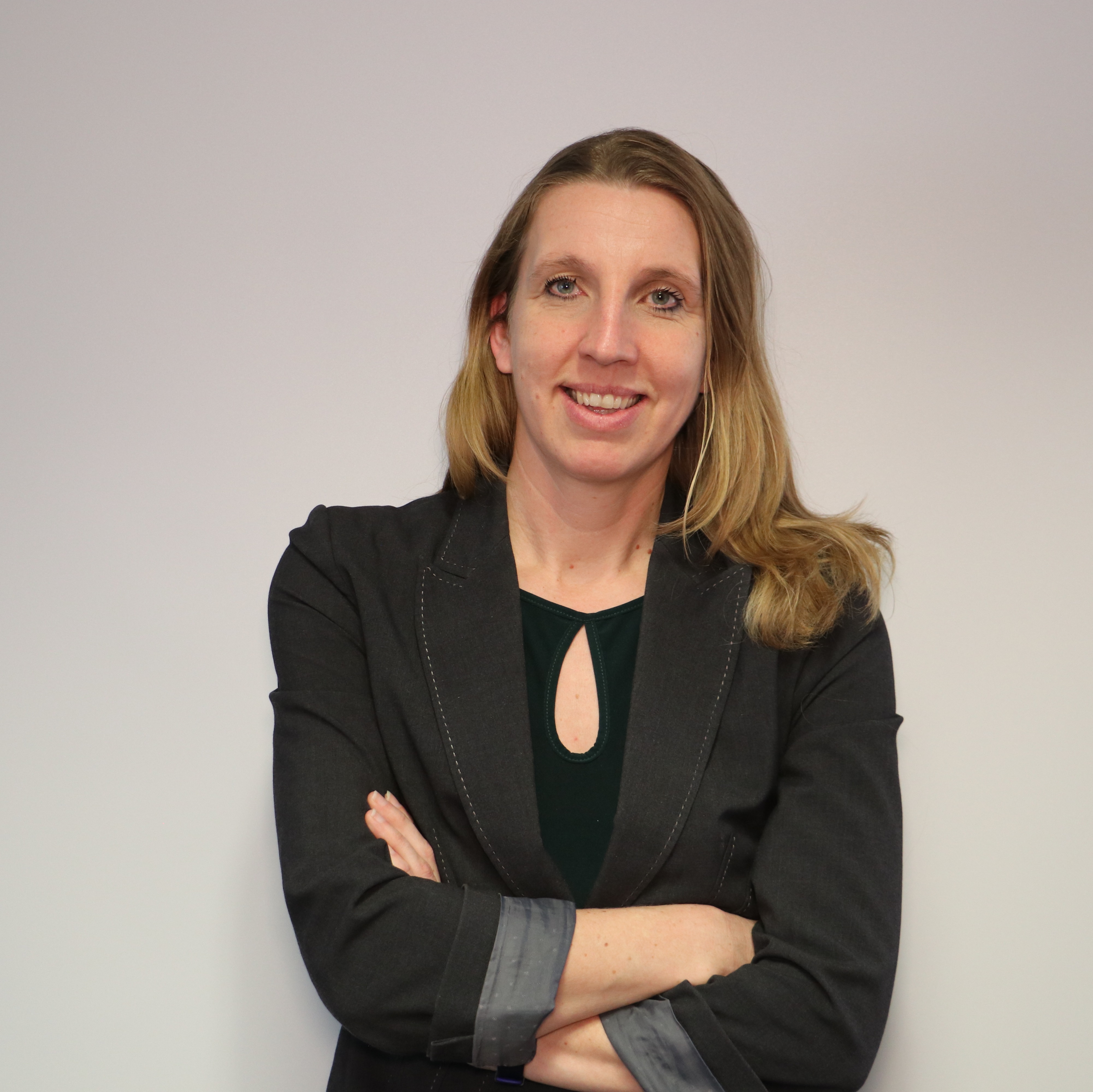
Ruth Noordegraaf
Director, Community Development, Wellbeing and IIDEA, City of Kingston
Ruth Noordegraaf is the Director of the newly created (2024) Community Development, Wellbeing and IIDEA department with the City of Kingston. Her portfolio includes areas such as Food Security, Aging Friendly, Community Safety, Wellbeing and Equity, Diversity and Inclusion. The work focuses primarily on the various system wide social issues that communities in Canada are facing, and the preventative actions municipalities can take. Ruth is passionate about striving to building communities where all are safe, healthy, nourished and welcomed.

Jazlyn O'Bonsawin (she/her)
Project Coordinator, Canadian Centre for Safer Communities
Jazlyn is a master's student in the Community Psychology program at Wilfrid Laurier University. As an Abenaki woman, Jazlyn has experience doing research with Indigenous communities in a way that ensures reciprocity Indigenous people and communities. She joined the Canadian Centre for Safer Communities (CCFSC) in June of 2023 and has been working on the community and urban safety monitoring project, specifically working on identifying indicators of safety that are relevant to Indigenous people and communities. Jazlyn uses a culturally sensitive community-based approach that ensures that Indigenous voices are heard and represented in the community and urban safety monitor.
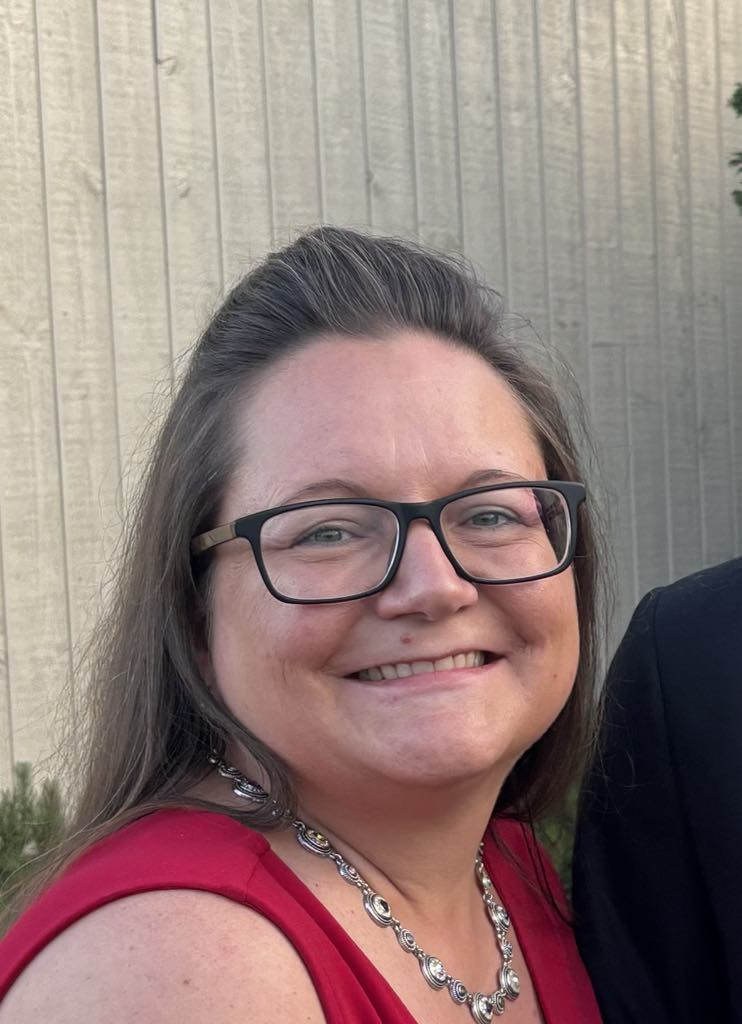
Johanna Paradis
Community Services Coordinator, Town of Englehart
Community Services Coordinator for the Town of Englehart, with a background in education. Passionate about engaging youth to learn with and from them to enhance our communities. Member of the Timiskaming Drug and Alcohol Strategy, Planet Youth Steering Committee and chair of the Central Action Team.

Dr. Andrea Sereda
Lead Physician, London Intercommunity Health Centre
Dr. Andrea Sereda is the lead physician at London Intercommunity Health Centre’s Health Outreach program, where she cares for people marginalized from traditional healthcare systems. Dr. Sereda focuses on caring for people who use drugs, people deprived of housing, women in the survival sex trade, as well as medical street outreach and care in non-traditional settings such as shelter or jail.
Dr. Sereda is the founding physician for Safer Opioid Supply (SOS), which provides pharmaceutical grade opioids to people dependent on the unregulated street fentanyl supply. SOS is a Health Canada recognized, SUAP funded program that is a pillar of the Federal government’s approach to the overdose crisis.
Dr. Sereda is an avid harm reductionist, practicing solidarity with all marginalized peoples, with the goal of eliminating power structures in medicine that perpetuate poor health and oppression.

David Smith
Chief Executive Officer, CMHA Peel Dufferin
David Smith is the CEO of the Canadian Mental Health Association Peel Dufferin (CMHA Peel Dufferin). Over the last ten years David has stewarded the growth of the organization. Under his leadership the organization has also established the 24.7 Crisis Support Peel Dufferin program, implemented the Rapid Access Addiction Clinic, redesigned multi-disciplinary teams, introduced Ontario Structured Psychotherapy, the Black Health and Social Services Hub, and is an active leader of the Hills of Headwaters OHT and Co-Chair of the Central West OHT. David also chairs the provincial integrated assessment record committee and sits on the provincial OHT governance and leadership advisory committee, Access and Flow Table and Core Services Framework.
David has worked at the Ministry of Health, as Director of Operations for the Oxfordshire and Buckinghamshire NHS Mental Health Trust and for the European Union on several deprivation projects.
His work has included implementation of the National Mental Health Service Framework including introduction of Crisis Teams, Early Intervention in Psychosis services, Assertive Community Treatment Teams and Complex Needs Services. He was also responsible for the implementation of new electronic Care Planning and assessment technologies.
Prior to his time in the UK, David worked as a frontline community mental health worker, working for several different CMHA branches in housing and case management.
He completed his MBA at Lancaster University in the United Kingdom.

Ashley Smoke
President and co-founder of The Ontario Network of People Who Use Drugs
Ashley Smoke is the President and co-founder of The Ontario Network of People Who Use Drugs, Co-founder of Tweak Easy CBG and is the Team Lead of the RED Path Project for the Native Women's Association of Canada. Ashley also works with many organizations like ODPRN, to advise them on their work with/for/about people who use drugs.

Elaine Toombs
Adjunt Professor, Lakehead University & Psychologist, Dillco Anishinabek Family Care
Dr. Elaine Toombs is an adjunct professor in the Department of Health Sciences at Lakehead University. Her research primarily focuses on First Nations mental health using community-based methods, including how eHealth interventions can be used in a culturally-relevant manner with Indigenous people seeking treatment for substance use. As a co-investigator, Dr. Toombs has held over 1.5 million dollars in research funding to date, and has published over 35 peer-reviewed manuscripts in a variety of scientific journals on topics related to First Nation mental health, childhood adversity, and wellbeing. In addition to her academic work, Dr. Toombs is a registered clinical psychologist at Dilico Anishinabek Family Care and provides on-reserve assessment, intervention, and consultation services for First Nation children, adolescents, and adults in the Robinson Superior Treaty Area.
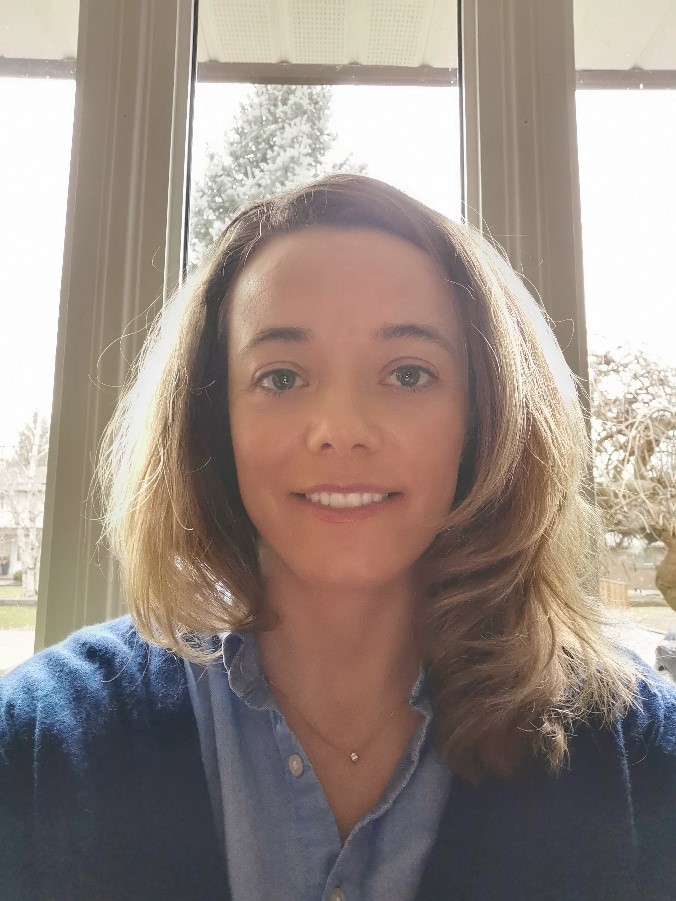
Heidi Wheeler (she/her)
Supervisor, Victim Services Program, Métis Nation of Ontario
I have worked in the field of Victim Services for more than 25 years in various capacities. I spent the first decade of my career working in the Domestic Violence Field. Including; Frontline work in Women’s Shelters; VAW Outreach, Public Education on issues related to Domestic Violence and Sexual Violence.
Prior to joining the MNO, I worked for 8 years Managing a Sexual Assault Crisis Line. I have provided extensive training in Crisis Intervention and Trauma Informed Support.
I have been working with the MNO in the Victim Services Program since 2021, and this last year moved in to the Supervisor role for the program.
I am very passionate about social justice and I am committed to working to end the victimization and violence experienced by Indigenous Women, Girls and 2SLGBTQ++ communities.

